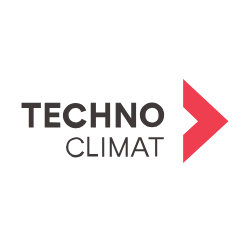
Ecocamionnage Program — Collaborative shared electric delivery project
At a glance
- Maximum amount : 2,000,000 $
- Up to 50% of project cost
- Receipt of requests is suspended
- Transportation and warehousing
- Quebec
- Non-profit
- Public or Parapublic institution
- Non-financial cooperative
- All revenue ranges
- All organization sizes
- Canadians
- Environment
- Economic, Social and Community Development
- Rural / Remote communities
- Business owners / entrepreneurs
- Nonprofits / charities
- All structures
- Local
- Municipal
- Regional
Overview
The grant aims to enhance freight transport efficiency and reduce greenhouse gas emissions through the collaborative use of electric vehicles. Eligible activities include technical or feasibility studies and the implementation of pilot projects for shared and electric delivery systems. Municipalities, non-profits, and cooperatives in Quebec legally constituted for at least two years can apply.
Activities funded
This grant supports collaborative projects that aim to enhance freight transport efficiency and reduce greenhouse gas emissions. The eligible activities focus on optimizing the use of electric vehicles and fostering stakeholder collaboration.
- Conducting a technical or feasibility study prior to the implementation of a collaborative shared electric delivery pilot project to identify stakeholders, existing systems, potential obstacles, and key success factors.
- Implementing the collaborative shared electric delivery pilot project to reduce the number of trucks on streets and roads, optimize vehicle use, cut transportation costs, and diminish negative health impacts.
Eligibility
To be eligible for this grant, applicants must meet certain criteria regarding their legal status and operational presence.
- The applicant must be a local municipality, a regional county municipality (MRC), a grouping of municipalities bound by an agreement, a metropolitan community, or a municipal or intermunicipal organization under it.
- A non-profit legal entity.
- A cooperative.
- The applicant must have its head office or an establishment in Quebec and must have been legally constituted for at least two years.
- The vehicles used for the projects must be registered in Quebec when registration is required.
Who is eligible?
The grant under "Volet 6.4.1 Projet collaboratif de livraison partagée et électrique" is available to specific organizations in Quebec aiming to improve the efficiency of goods transportation through collaboration and electric vehicle usage.
- Local municipalities, regional county municipalities (MRCs), groups of municipalities linked by agreement, metropolitan communities, and municipal or intermunicipal bodies under them.
- Non-profit organizations (NPOs).
- Cooperatives.
Eligible expenses
The grant supports collaborative projects that enhance the efficiency of goods transportation with an emphasis on reducing greenhouse gas emissions through the use of electric vehicles. These initiatives are designed to foster stakeholder collaboration and optimize delivery processes.
- Preliminary technical or feasibility study to plan a collaborative pilot project for electric and shared delivery, identifying stakeholders and addressing potential challenges.
- Implementation of a collaborative pilot project for electric and shared delivery.
Eligible geographic areas
This grant is available to organizations that have their headquarters or an establishment in a specific region. Eligible applicants must be based within the province of Quebec, Canada.
- Organizations with headquarters or establishments in Quebec, Canada.
Selection criteria
The evaluation and selection of projects for this grant are based on specific criteria with allocated point scores to ensure alignment with the grant’s objectives of reducing GHG emissions and promoting collaborative and electric delivery solutions.
- Impacts of the project on the reduction of GHG emissions (eliminatory criterion): /25
- Quality of the team (competencies, expertise), the submission (presentation), the financial structure, and the communication plan: /20
- Innovative nature and quality of the project concerning new mobility technologies and techniques: /20
- Structuring aspect of the project for the development of Quebec (economic and social impacts): /20
- Dissemination and valorization of the project's learnings: /15
How to apply
Monitoring of project calls
- Consult the Ministry's website for project call announcements.
- Note the submission dates specified for each project call.
Preparation of the request
- Collect and prepare all necessary documents, particularly regarding the presentation of the file, the applicant's expertise, the objectives, the methodology, and the expected deliverables.
- Include an assessment of the potential impacts of the project on the reduction of GHG emissions.
- Prepare an accurate financial arrangement and a communication plan.
Filling out the application form
- Access the online application form available on the Ministry's website during project calls.
- Complete the form with accurate and comprehensive information.
Submission of the request
- Electronically submit the application form and all supporting documents within the deadlines set by the call for projects.
Confirmation of submission
- Receive a submission confirmation once all documents have been submitted.
- Keep the confirmation to track the status and progress of the application.
Additional information
The grant encompasses both technical studies and pilot project implementations aimed at enhancing collaborative electric delivery projects to reduce GHG emissions.
- Study projects must be completed within 24 months, and implementation projects within 36 months from the engagement date.
- The analysis of projects involves evaluation based on GHG reduction impacts, quality of the application, and several other criteria.
- The aid financial can be up to 2,000,000 CAD for implementation projects with a limit of 500 CAD per tonne of GHG emissions reduced.
- Financial aid is distributed in three installments: 40% upon signing the engagement, 40% after submitting an interim report, and 20% after submitting the final report and verification.
Frequently Asked Questions about the Ecocamionnage Program — Collaborative shared electric delivery project Program
What is the Ecocamionnage Program — Collaborative shared electric delivery project?
How much funding can be received?
What expenses are eligible under Ecocamionnage Program — Collaborative shared electric delivery project?
What is the deadline to apply?
Is the Ecocamionnage Program — Collaborative shared electric delivery project a grant, loan, or tax credit?
Who are the financial supporters of the Ecocamionnage Program — Collaborative shared electric delivery project?
Who is eligible for the Ecocamionnage Program — Collaborative shared electric delivery project program?
Who can I contact for more information about the Ecocamionnage Program — Collaborative shared electric delivery project?
Where is the Ecocamionnage Program — Collaborative shared electric delivery project available?
More programs like this

Ecocamionnage Program — Logistics Project Component
Minister of Transport and Sustainable Mobility of Quebec
Technoclimat
Environnement Québec (MELCC)
Charge+
Propulsion Quebec
Ecocamionnage Program — Technology acquisition component
Minister of Transport and Sustainable Mobility of Quebec
Ecocamionnage Program — Acquisition of used heavy vehicles component
Minister of Transport and Sustainable Mobility of Quebec
Financial assistance for infrastructure projects supporting the mining sector (ENIAM)
Gouvernement du Québec
Ambition-Compétences — Training for resilience and competitiveness in employment
Commission des partenaires du marché du travail (CPMT)
Regions and Rurality Fund (RRF) - Component 1 - Support for regional outreach
Gouvernement du Québec
Productivity-Skills
Gouvernement du Québec